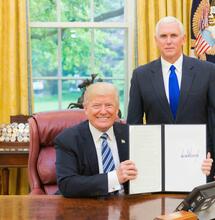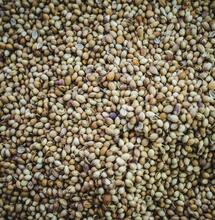Children and Medicinal Cannabis: The Law

UK law changed in November 2018 to make prescribing medical cannabis legal. For parents with children living with a condition that they feel could be improved by medicinal cannabis, not having the medicine readily available is frustrating and leads to considerable distress. However, the current situation concerning prescribing medicinal cannabis is far from straightforwar
NHS England and NHS Improvement reviewed the barriers to accessing cannabis-based medicinal products on NHS prescription in August 2019. The published report contains several recommendations for clinicians, researchers and policymakers.
Which types of cannabis-based medicines can you get in the UK?
Three cannabis-based medicines are available in the UK:
licensed
unlicensed ('specials')
non-pharmaceutical grade
Licensed cannabis-based medicinal products include
Cannabidiol (CBD)
Epidyolex (cannabidiol) oral solution has been formulated to a pharmaceutical level and has undergone clinical trials.
In September 2019, Epidyolex received EU marketing authorisation to treat seizures associated with Lennox Gastaut syndrome (LGS) or Dravet syndrome (DS) for patients aged two years or older. Epidyolex may contain traces of THC, which is still regulated as a Controlled Drug.
CBD plus THC containing products
Sativex oromucosal spray is licensed for adult patients with moderate to severe spasticity as a symptom of multiple sclerosis (MS) who have not responded adequately to other anti-spasticity medication.
Sativex is not advised for use in children or adolescents below 18, although clinical studies in children have been undertaken. Any child who does receive this medication should do so only under the care of a paediatric neurologist.
Licensed synthetic cannabinoids
Nabilone is a synthetic cannabinoid used in adults to manage nausea and vomiting caused by cytotoxic chemotherapy, unresponsive to conventional anti-emetics. It is used infrequently.
Unlicensed cannabis-based medicinal products or 'Specials'
These are often products that are manufactured or imported by a specialist doctor to treat individual patients.
In the eyes of licensed medical experts, there is little quality research in the form of controlled trials that supports the use of these products. However, national associations such as the British Paediatric Neurologist Association provide guidance to help clinicians in decision-making regarding prescribing for children.
THC is the chief psychoactive component of cannabis; unlicensed cannabis-based medicinal products may contain varying proportions of CBD and THC. However, because THC may carry additional potential risks, this kind of treatment is unsuitable for children in the eyes of many.
The main risks of cannabis products that contain THC are:
- Psychosis – there is some proof that regular cannabis use at a young age increases your risk of developing schizophrenia or another psychotic illness. However, this evidence relates to recreational users rather than those exposed to cannabis-based medicinal products.
- Dependency – although this risk is probably small when used, controlled and monitored by a specialist doctor. Generally, the more THC the product contains, the greater the risk of dependency.
- Cognitive effects – there is evidence from animal and human studies that THC-containing products affect understanding and memory.
- Pro-convulsant effects – Some animal studies have shown THC to have an anticonvulsant effect, whilst others some have shown pro-convulsant effects.
Non-pharmaceutical grade cannabis, including food supplements
These are readily available in health stores and online. They are not classed as medicines or licensed, have varying levels of ingredients, and may contain impurities. As they have variable amounts of CBD, it is unclear how effective they are and if there are any side effects.
Some products have even been shown to contain no specified active ingredients and may contain varying amounts of THC. As a result, not all products are identified as food supplements, which may lead to confusion for patients and families. In addition, drug-supplement interactions can potentially occur.
Which medicine do UK doctors prescribe?
Epidyolex is the only licensed product that doctors can prescribe. On rare occassions other unlicensed products of a high quality may be prescribed and sourced in accordance with Home Office Guidance.
Paediatricians of course will always act with the best interest of their patients at the forefront of their minds. Clinicians, patients and their families must be confident that any prescribed medication is safe and effective.









